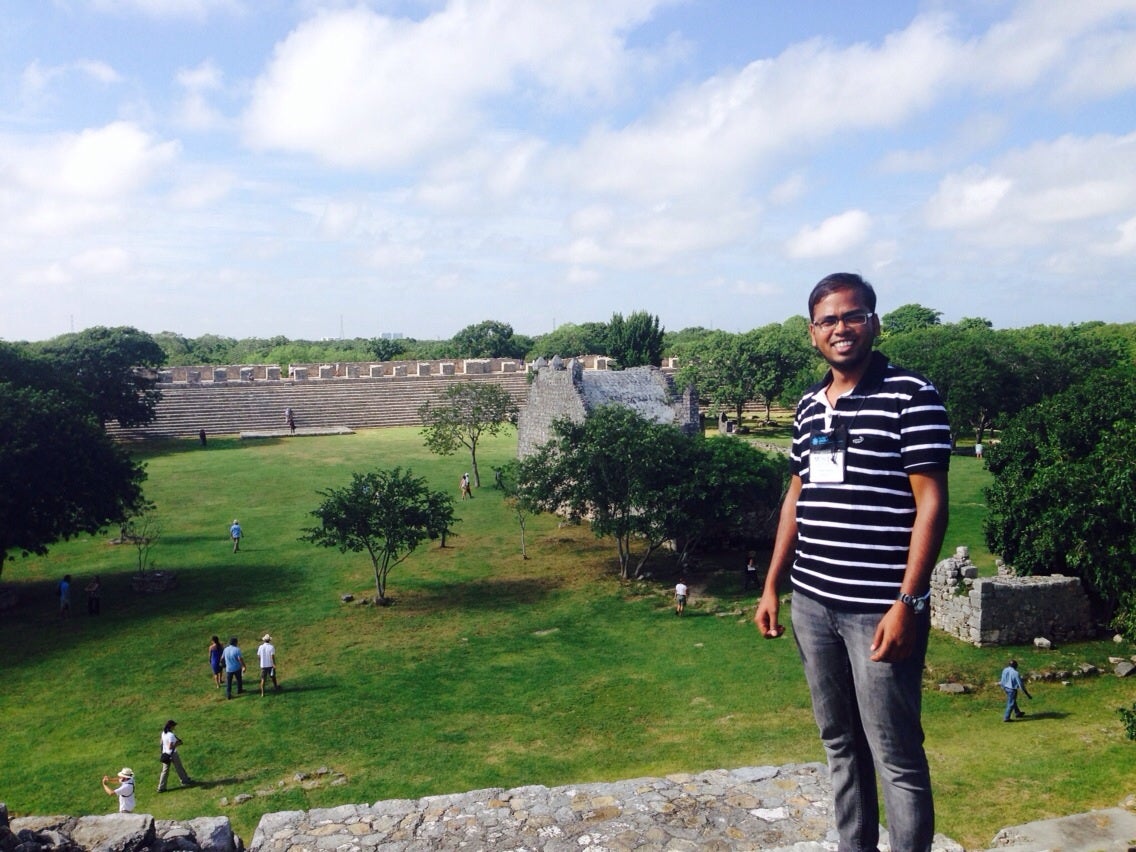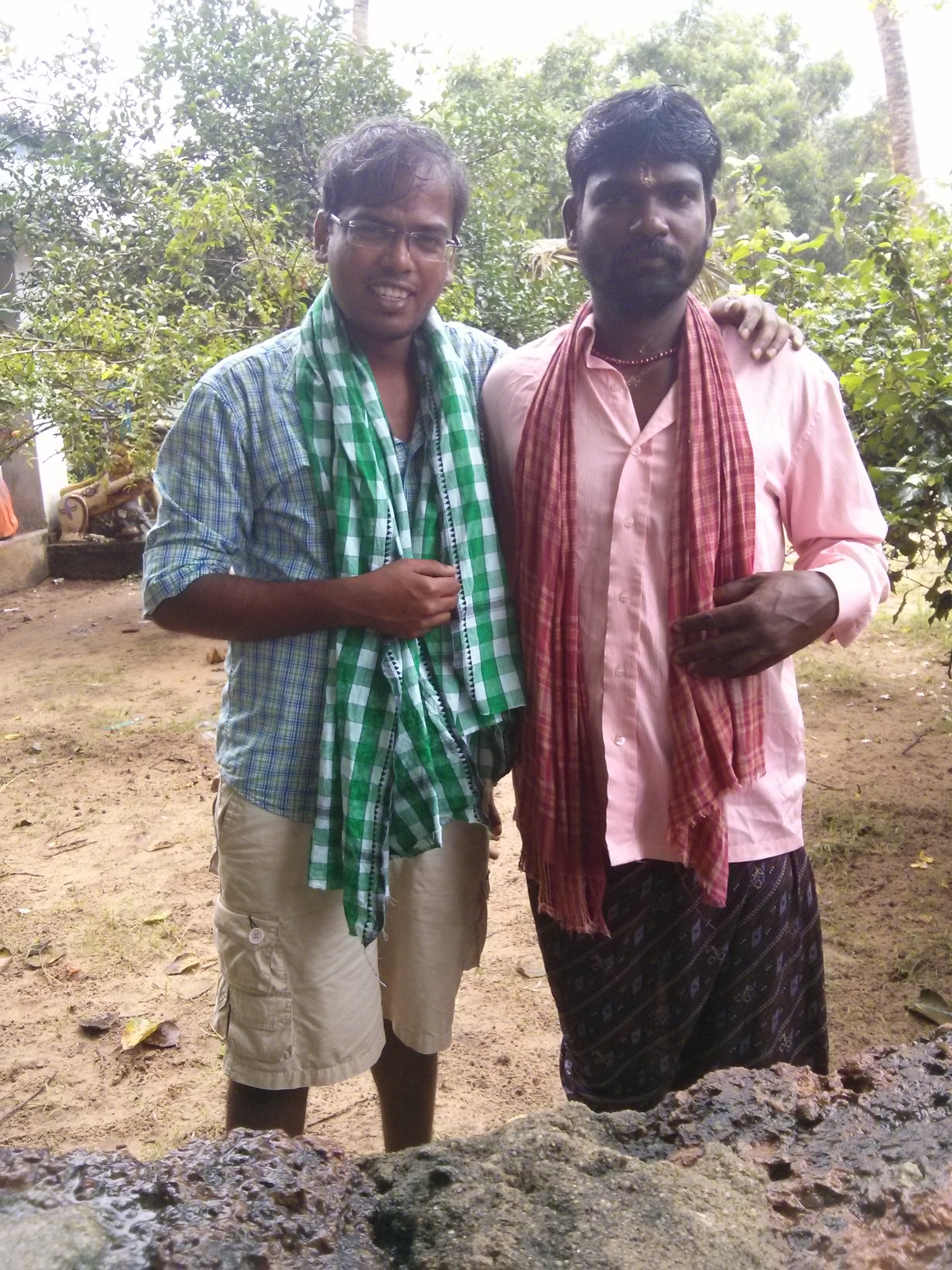Chilika lagoon is the largest brackish water lagoon in Asia situated along the east coast of India in the state of Odisha. More than 400,000 fishers, belonging to specific fisher castes, customarily depend upon the lagoon for their livelihood. As a Sustainability Management Program Master’s student at the University of Waterloo and as a part of my Master’s research thesis, I got the opportunity to do a Village level study in Chilika Lagoon.

Ashok, on a visit in Mexico, after giving his research presentation there.
In my research, I analysed how people perceive and adapt to the environmental changes. Results shows that this fisher village is suffering from lack of fishing space, reduction in the daily income, conflict with nearby village Banabaspur and lack of communication between fisher villages. These changes are brought about by the anthropogenic drivers like the opening of new sea mouth, shrimp aquaculture, change of fishing technique from traditional to synthetic fishing nets and connection of this Island by road. For long term and sustainability of the lagoon, policy making should consider the voices of this minority fisher group. Other recommendations for future sustainability are abolition of shrimp aquaculture, connecting the island by bridge instead of road and returning to the traditional technique.

I thank my home supervisor Dr. Prateep Nayak and co-supervisor Dr. Derek Armitage, of University of Waterloo, Canada for bringing a strong theoretical and methodological orientation to my research work. Their timely feedback on the process and the output of research was valuable. I had a great learning experience from my host supervisor Dr. Vishal Narain, Management development Institute, Gurgaon, India. He was instrumental in guiding me while I was in the field. His input on the governance and policy aspect of my research was extraordinary. I also extend my thanks to my language interpreter Mr. Tapan, who assisted me during my three month long field visit.
My three months field experience with the fishers of Khirishai in Chilika Lagoon was astronomical. I not only gained experience as an academician, but also as a common person I realised how hard is for them to live as a fisher in the midst of these changing social-ecological system with a hope for bright future.
This research project is part of an ongoing research project “Living with Climate Change” (LCC) funded by Social Science and Humanities Research Council (SSHRC) of Canada under its Partnership development Grant (PDG). I presented the research outcomes at an International Workshop on Living with Climate Change organised in collaboration with Women in Environment, Kathmandu, Nepal during August 17 to 22, 2014 and also at the 2nd World Small Scale Fisheries Congress, September 21-26, 2014, Merida, Mexico.
I thanks Mitacs for awarding me Globalink research award which gave not only financial support but also moral and intellectual support to carry out my research. I warmly thank the people of Khirishai cooperating and considering me as their community member during my research.